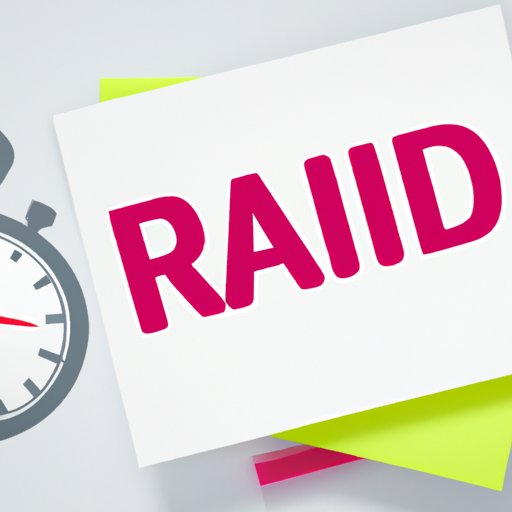Understanding Rapid Weight Loss and Why It’s a Concern
Rapid weight loss refers to a condition where a person loses a substantial amount of weight in a short span of time, usually in the range of 5 to 10 percent of their body weight in a period of six months or less. While weight loss may be desirable for people who are overweight or obese, losing too much too quickly can be a concern for various reasons.
For starters, sudden weight loss can be a sign of an underlying medical condition or disease that needs proper medical attention. Additionally, it can lead to nutrient deficiencies, weakened immunity, and other health issues. If you are experiencing rapid weight loss, it is imperative to rule out any serious medical conditions, and to work with your healthcare professional to manage it healthily.
Medical Conditions or Diseases That Cause Rapid Weight Loss
Sometimes, rapid weight loss can be the result of an underlying medical condition or disease. Here are some of the common ones:
Cancer
Cancer can cause weight loss due to the energy demands of the cancer cells, as well as side effects of treatment. Certain cancers, such as lung, pancreatic, and stomach cancers, are more likely to cause weight loss than others. Cancer-associated weight loss is often accompanied by fatigue, changes in appetite, and digestive issues.
Hyperthyroidism
Hyperthyroidism, a condition where the thyroid gland produces too much thyroxine hormone, can increase metabolism and cause weight loss. This condition is more common in women and may present with weight loss despite an increased appetite, sweating, and heart palpitations.
Inflammatory Bowel Disease
Inflammatory bowel disease, including ulcerative colitis and Crohn’s disease, can lead to weight loss as a result of chronic inflammation of the digestive tract. In addition, diarrhea, bleeding, and nausea/vomiting can cause dehydration and nutrient loss, resulting in weight loss. People with inflammatory bowel disease may experience a range of digestive symptoms, including abdominal pain, cramping, and gas.
Managing Rapid Weight Loss in a Healthy Way
Depending on the cause and severity of your rapid weight loss, your healthcare provider may recommend ways to manage it. Here are some tips for healthy weight management:
Suggest Dietary Changes
Eating a balanced diet with small, frequent meals throughout the day can help you maintain a healthy weight. Make sure you are consuming adequate amounts of protein, carbohydrates, and healthy fats, as well as vitamins and minerals. Avoid skipping meals, as it can lead to overeating later in the day. It is also important to avoid highly processed foods and added sugars.
Maintain Hydration
Proper hydration is essential to maintaining your body’s normal functions. Drink water, tea, or other low-calorie drinks throughout the day to stay hydrated. Avoid or limit alcohol and sugary drinks, including fruit juices and soft drinks.
Exercise Can Help to Stabilize Weight Loss
Regular exercise can help you maintain a healthy weight and improve your overall health. Talk to your healthcare provider about the type and amount of exercise that is appropriate for you, especially if you have an underlying health condition that affects your movement. Avoid overexerting yourself and focus on building consistency in exercising.
Stress Management Techniques
Stress reduction techniques such as meditation, breathing exercises, and yoga can help manage weight loss that is caused by psychological factors like stress and anxiety. See a therapist if you need to deal with anxiety or depression.
Psychological Reasons for Rapid Weight Loss
The psychological impact of chronic and severe stress, anxiety, and depression can cause rapid weight loss by disrupting metabolism and appetite control. Stress triggers the release of hormones like cortisol, which can cause insulin resistance and lead to a decrease in metabolism. Finding ways to manage psychological stress through relaxation or therapy can be an effective way to stabilize weight loss.
Latest Scientific Research on Rapid Weight Loss
Recent studies in the field of obesity research have shown that rapid weight loss may be linked to an increased risk of mortality, particularly in older adults. Obesity research studies also found that the timing and composition of meals can have a direct impact on weight loss. It is essential to discuss the latest scientific research with a healthcare provider.
Importance of Healthy Weight Management
Maintaining a healthy weight is crucial to overall health and reducing the risk of various health problems associated with being overweight or obese. Follow a balanced diet and engage in regular physical activity to prevent weight gain and to manage any weight-related issues effectively. Consult with a healthcare professional if you are experiencing rapid weight loss, so you can address the underlying cause and manage it in a healthy way.
Conclusion
Rapid weight loss can be a cause of concern as it may indicate an underlying medical condition or disease, or may lead to nutrient deficiencies and weakened immunity. It is important to manage weight loss in a healthy way, including making dietary changes, maintaining hydration, exercise, stress management strategies, and seeking professional help if necessary. Healthy weight management is crucial for overall wellness and is one of the best ways to decrease the risk of health problems associated with obesity.
